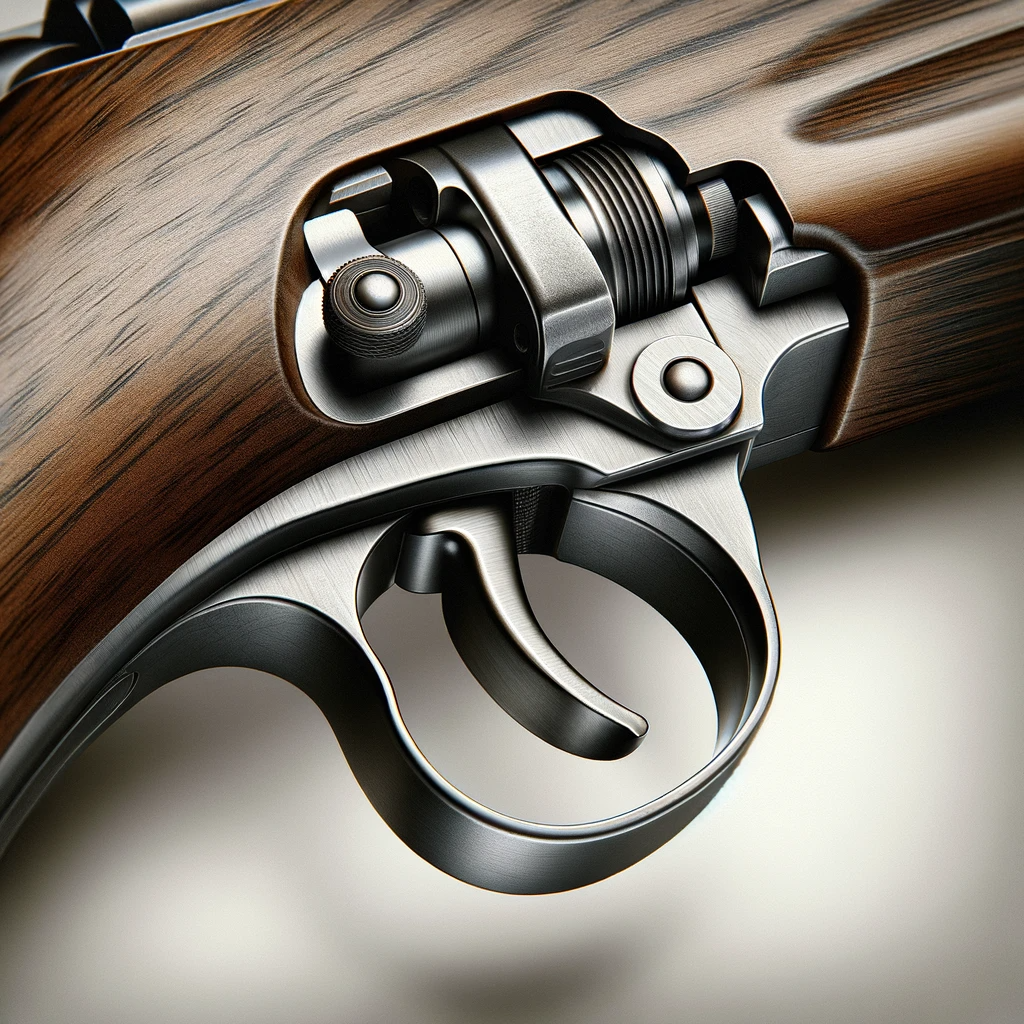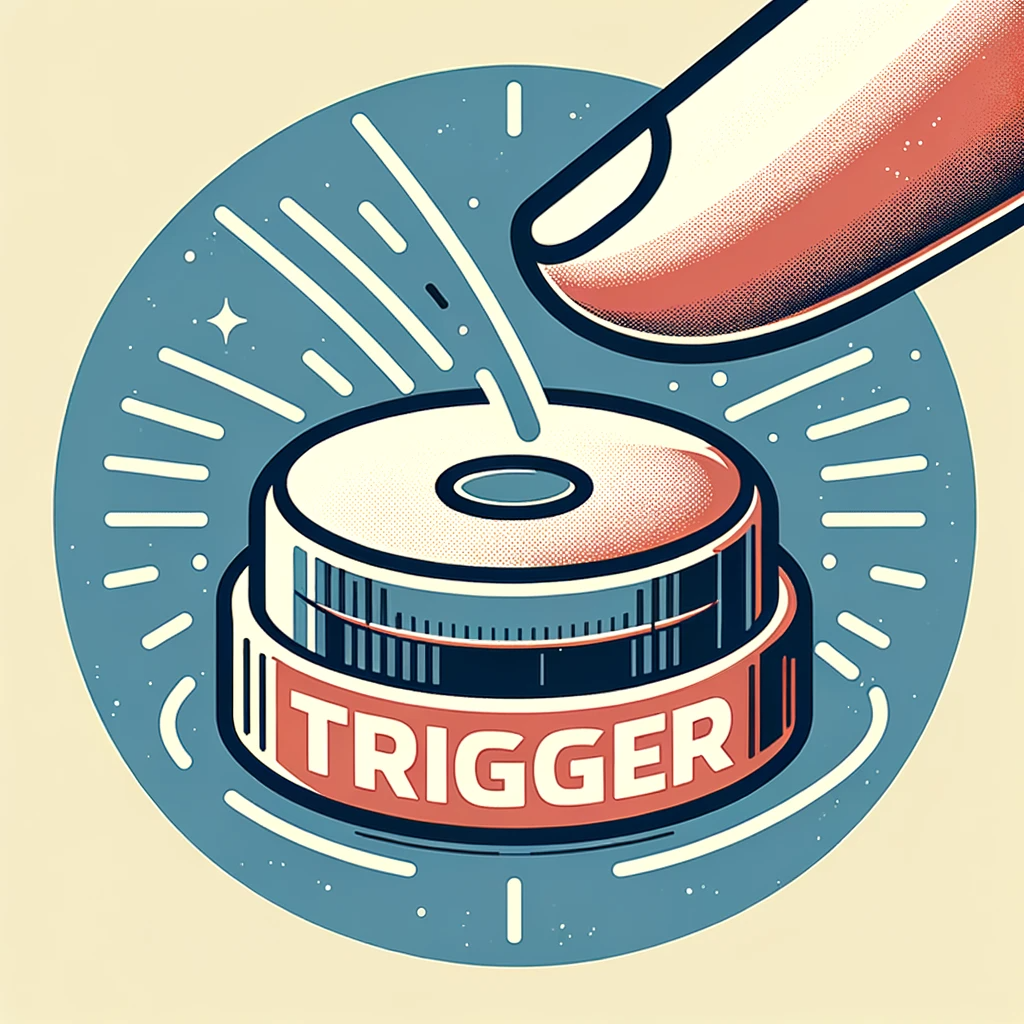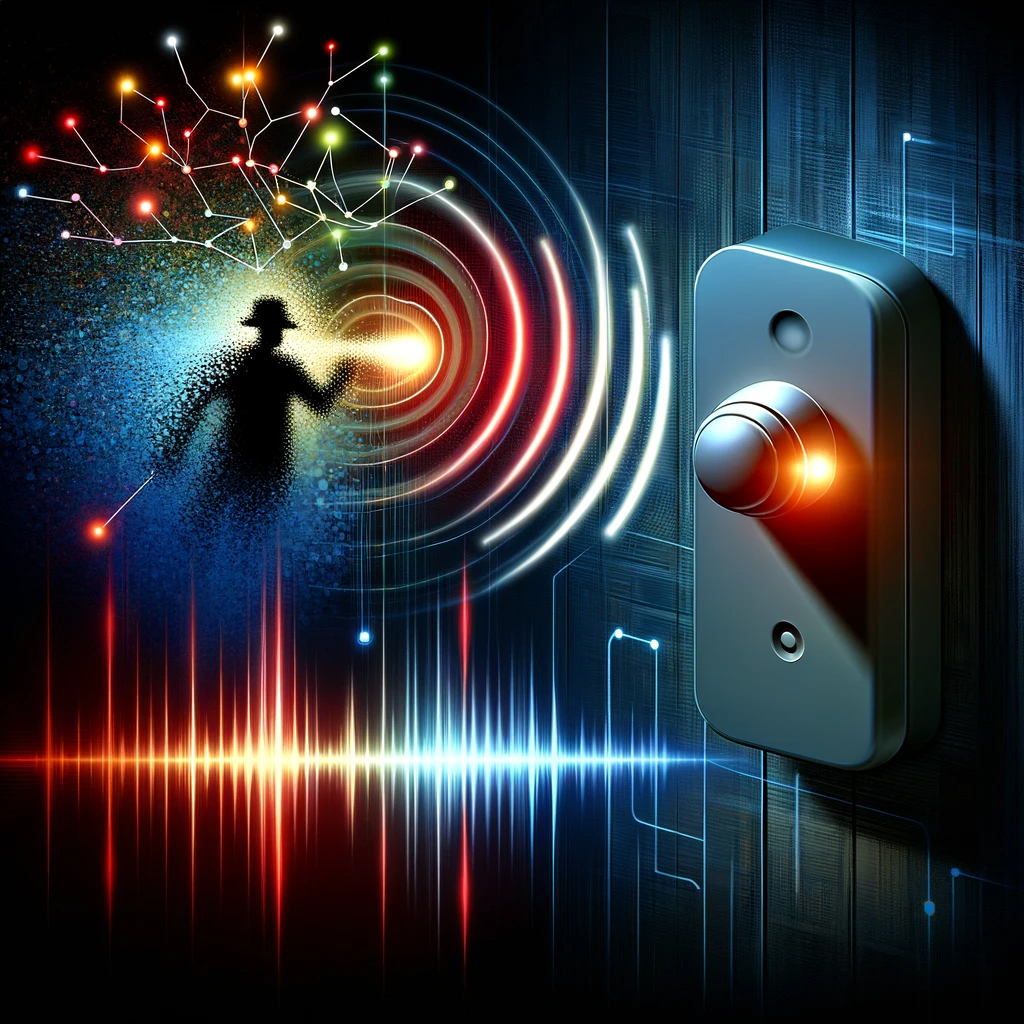Trigger
Definition
"Trigger" primarily refers to a small device that releases a spring or catch and sets off a mechanism, especially in order to fire a gun. It can also mean to cause (an event or situation) to happen or exist.
Parts of Speech
- Noun
- Verb
Pronunciation
American English
- IPA Pronunciation: /ˈtrɪɡər/
- Respelling: TRI-gur (with "TRI" rhyming with "try" and "gur" as in "burr")
British English
- IPA Pronunciation: /ˈtrɪɡə/
- Respelling: TRI-guh (similar to American English, with "TRI" as in "try" and "guh" like the ending of "bigger")
In both dialects, "trigger" is pronounced with the primary stress on the first syllable "TRI," which rhymes with "try." The difference lies in the pronunciation of the final syllable: in American English, it's "gur," sounding like "burr," while in British English, it's "guh," similar to the ending of "bigger." The pronunciation is fairly consistent between the two dialects, with a slight variation in the final vowel sound.
Etymology
The word "trigger" comes from the Dutch "trekker," from "trekken" meaning "to pull." Originally, it referred to the lever pulled to release a mechanism, like on a gun. The broader usage of initiating an action or event developed later.
Derivatives
- Triggered (adjective, past tense verb)
- Triggering (verb, present participle)
- Triggerable (adjective)
- Triggersome (adjective, rare)
- Triggerman (noun)
Synonyms
- Activate
- Initiate
- Spark
Antonyms
- Halt
- Deter
- Prevent
Usage
- As a noun: "He gently squeezed the trigger of the shotgun."
- As a verb: "The loud noise triggered the alarm."
Related Terms
- Catalyst: Something that causes an important event to happen.
- Provoke: Stimulate or give rise to a reaction or emotion, typically a strong or unwelcome one, in someone.
- Mechanism: A system of parts working together in a machine or an intricate structure.
Detailed Definition
As a Noun:
- A small device that releases a mechanism, especially to fire a gun: "The trigger of the rifle was sensitive and well-calibrated."
- A factor or situation that causes a process or reaction to begin: "High stress can be a trigger for migraines."
As a Verb:
- To cause (a device or process) to function: "The intrusion triggered the security alarm."
- To initiate or precipitate (a chain of events, scientific reaction, psychological process, etc.): "The controversial remarks triggered a heated debate."
- In psychology, to evoke an emotional or traumatic reaction: "The movie scene might trigger distressing memories for some viewers."
- To operate or activate by a trigger: "She triggered the camera shutter remotely."
- In computing, to execute or activate by an external stimulus: "The script is triggered by a specific user action."
trigger



🇨🇳 Mandarin
- 枪扳机 (qiāng bānjī) [firearm mechanism]
- IPA: /t͡ɕʰi̯áŋ pan.t͡ɕí/
- Respelling: chiang ban-jee
- 触发 (chù fā) [to cause something to start]
- IPA: /ʈ͡ʂʰû fá/
- Respelling: chu fa
🇮🇳 Hindi
- ट्रिगर (ṭrigar) [firearm mechanism]
- IPA: /ʈrɪɡər/
- Respelling: trigar
- प्रेरित करना (prerit karnā) [to cause something to start]
- IPA: /preː.rit kər.naː/
- Respelling: prerit karna
🇪🇸 Spanish
- Gatillo [firearm mechanism]
- IPA: /ɡaˈtiʝo/
- Respelling: ga-teeyo
- Desencadenar [to cause something to start]
- IPA: /desenkaˈðenaɾ/
- Respelling: desen-kah-denar
🇫🇷 French
- Détente [firearm mechanism]
- IPA: /detɑ̃t/
- Respelling: day-taht
- Déclencher [to cause something to start]
- IPA: /deklɑ̃ʃe/
- Respelling: day-klawn-shay
🇸🇦 Modern Standard Arabic
- مِقْبَض النَّار (miqbaḍ an-nār) [firearm mechanism]
- IPA: /miq.bað an.naːr/
- Respelling: miq-badh an-nar
- يُثير (yu'thir) [to cause something to start]
- IPA: /juː'θir/
- Respelling: yoo-theer
🇧🇩 Bengali
- ট্রিগার (ṭrigār) [firearm mechanism]
- IPA: /ʈriɡar/
- Respelling: trigar
- চালু করা (cālu korā) [to cause something to start]
- IPA: /tʃalu kɔra/
- Respelling: chalu kora
🇷🇺 Russian
- Курок (kurok) [firearm mechanism]
- IPA: /kuˈrok/
- Respelling: kurok
- Запустить (zapustit’) [to cause something to start]
- IPA: /zɐˈpus.tʲɪtʲ/
- Respelling: zapustit
🇵🇹 Portuguese
- Gatilho [firearm mechanism]
- IPA: /ɡɐˈtiʎu/
- Respelling: ga-teelyo
- Desencadear [to cause something to start]
- IPA: /dɨsẽkɐˈðjar/
- Respelling: des-en-kah-deyar
🇮🇩 Indonesian
- Pelatuk [firearm mechanism]
- IPA: /pə'latʊk/
- Respelling: peh-latuk
- Memicu [to cause something to start]
- IPA: /mə'mitʃu/
- Respelling: meh-meechu
🇩🇪 German
- Abzug [firearm mechanism]
- IPA: /ˈap.t͡suːk/
- Respelling: ahb-tsook
- Auslösen [to cause something to start]
- IPA: /aʊsˈløːzən/
- Respelling: ous-loezen
🇯🇵 Japanese
- トリガー (torigā) [firearm mechanism]
- IPA: /toɾiɡaː/
- Respelling: tori-gah
- 引き起こす (hikiokosu) [to cause something to start]
- IPA: /çikio̞koso̞/
- Respelling: hiki-okosu
🇻🇳 Vietnamese
- Cò súng [firearm mechanism]
- IPA: /kɔ˧ sʊŋ˧˥/
- Respelling: kaw soong
- Kích hoạt [to cause something to start]
- IPA: /kiʔ hwat˧˥/
- Respelling: kik hwat
🇰🇷 Korean
- 트리거 (teurigeo) [firearm mechanism]
- IPA: /thɾi.ɡʌ/
- Respelling: tree-geoh
- 촉발시키다 (chokbal sikida) [to cause something to start]
- IPA: /ʧʰok̚.pal ɕʰi.kʰi.da/
- Respelling: chok-bal shee-kee-da
🇹🇷 Turkish
- Tetik [firearm mechanism]
- IPA: /teˈtik/
- Respelling: teh-tik
- Tetiklemek [to cause something to start]
- IPA: /teˈtiklemek/
- Respelling: teh-tikle-mek
🇵🇰 Urdu
- ٹرگر (ṭrigar) [firearm mechanism]
- IPA: /ʈrɪɡər/
- Respelling: trigar
- روزے رکھنا (rozē rakhnā) [to cause something to start]
- IPA: /roːzeː rəkʰ.naː/
- Respelling: roze rakh-na





